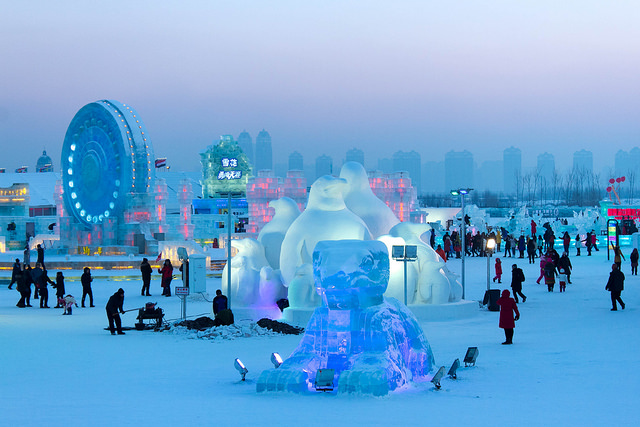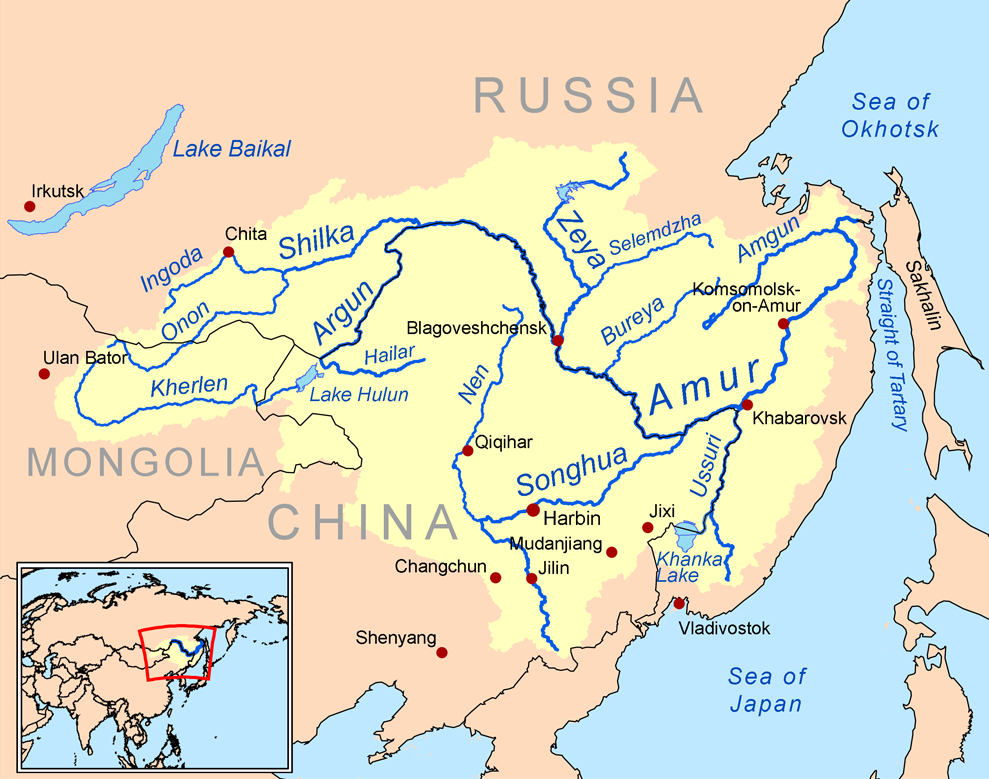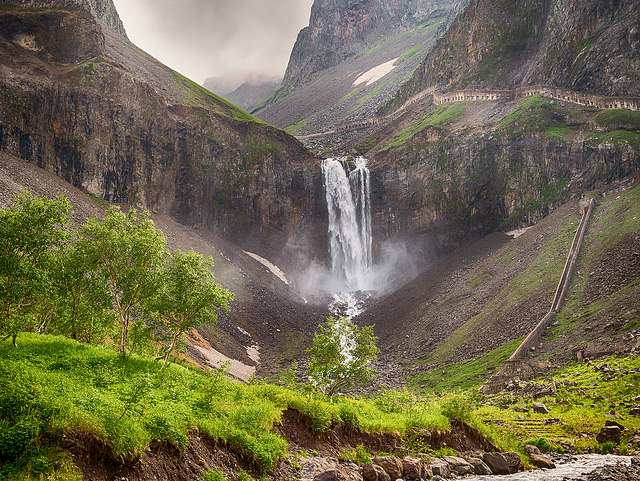by David Parmer / Tokyo
Northeast China’s Songhua River, China’s most northern river system, starts in an otherworldly location called Heaven Lake on the border with North Korea. The lake is a source for three rivers, the Songhua, the Tumen and the Yalu. Flowing north, and east, it passes the city of Jilin and meanders to Harbin and then joins the mighty Amur River and rolls into Khabarovsk and then on to the sea.
The Songhua is navigable up to Harbin, but for basically half the year, from November till April it is frozen solid. In Harbin the frozen Songhua provides a venue for winter recreation and Harbin’s world-famous Ice Festival.
In history, the Songhua River has been prominent in Chinese-Russian relations and in the building of the China Eastern Railway. In 2005 a chemical spill polluted the drinking water of Harbin and Khabarovsk. Today the Songhua River is quiet, and as the days pass into autumn the water will be getting ready for its annual freeze and Harbin for its festive time.
Changbi Waterfall, Heaven Lake (China/N. Korea border)
Photo: Harbin Ice Festival via flickr, Jarod Carruthers
Photo: Changbai Waterfall via flickr, Joe Jiang
 日本語
日本語 English
English 中国語
中国語

